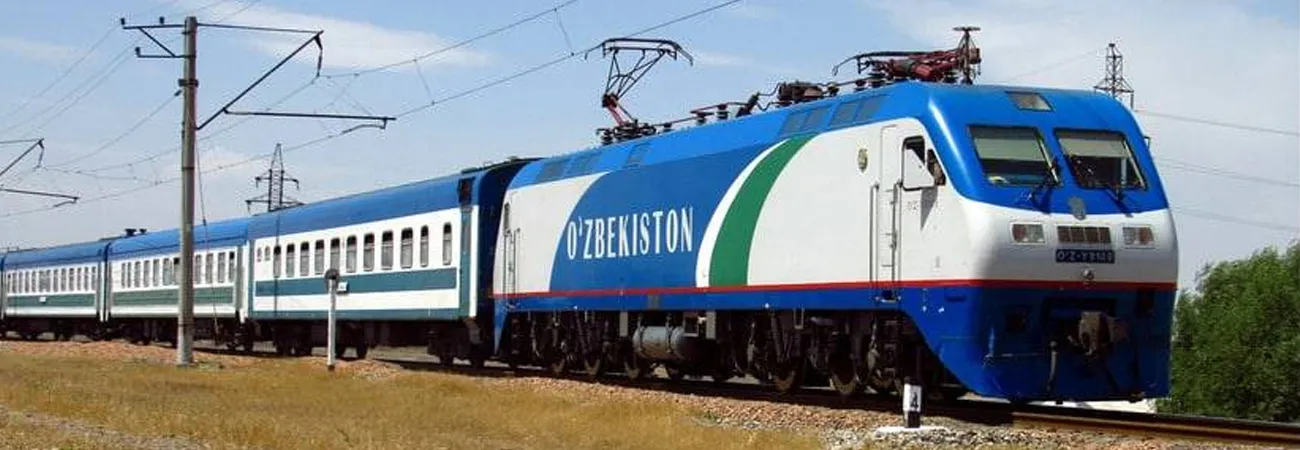i ECONOMY
The Uzbekistan-Afghanistan-Pakistan railway project will prove to be a ‘game changer’ for Pakistan as it will become a connectivity hub for Central Asian countries, said Chairman of Standing Committee of Sarhad Chamber of Commerce and Industry (SCCI) on Pakistan Railways and Dry Ports Ziaul Haq Sarhadi. Describing the railway project as a ‘promising development’, he highlighted this project would help Pakistan get access to the Central Asian and Russian markets, and imports through this route would also reduce the transportation cost from Uzbekistan to Pakistan by 40%, and the delivery time by five days.
Talking to WealthPK, Sarhadi said that the 760-kilometre railway route would pass through the city of Termiz in Uzbekistan, Logar and Mazar-i-Sharif in Afghanistan, and the Kharlachi border in the Kurram region of Pakistan, and then connect with the Kohat railway track. “This network is projected to bolster Pakistan's import capacity for affordable energy and other commodities from Central Asian countries and Russia, while also facilitating the export of Pakistani goods and services to Central Asian markets,” he said. “Pakistan has long sought to promote trade, political and cultural ties with Central Asian countries.”
He said the railway system was poised to provide both passenger and freight services, fostering intra-regional transit, two-way trade, and economic advancement, while also enhancing regional connectivity between the people. Sarhadi, who also serves as Director of the Pak-Afghan Joint Chamber of Commerce and Industry, emphasised the implications for landlocked Central Asian nations, granting them direct access to Pakistan's seaports in Karachi, Gwadar, and Port Qasim, thus facilitating connections to the Middle East and Africa.
Upon its planned completion in 2027, the project is expected to not only catalyse trade but also boost regional tourism by virtue of reduced travel costs. However, Sarhadi underscored that realising these benefits hinged on establishing lasting peace in the region and improving relations among neighbouring countries. “If they are also involved, the obstacles in the implementation of the project can be removed,” he added. The three countries have now finalised the shortest possible route of the railway track and also signed a joint protocol. This venture is hailed as a monumental event in Uzbekistan, aiming to enhance regional trade and connectivity by providing landlocked Central Asia and Afghanistan with direct access to Pakistan's seaports. It is predicted that by 2030, the railway could transport up to 15 million tonnes of goods annually.
This railway link addresses a significant challenge faced by businesses – transportation costs. Compared to the lengthy and unsafe existing roads, this link offers a more secure and efficient trade route, while effectively reducing transportation costs. Cargo trucks and trailers have to pass through a dangerous zig-zag road in the mountains near Torkham, the Pak-Afghan border.
Pakistan has long sought to enhance cooperation with Central Asian countries. Efforts have covered trade, investments, energy, and people-to-people exchanges. The partnership between Pakistan and Uzbekistan continues to flourish across various sectors, including trade, economics, health, security, agriculture, and information technology. Likewise, Afghanistan, heavily reliant on Pakistan for trade, stands to benefit from this project, as goods transported via rail to Mazar-i-Sharif can be efficiently distributed throughout Afghanistan by road.
Moreover, the railway track’s construction and operation are expected to generate employment opportunities in building, logistics and services, contributing positively to the local workforce. However, before this ambitious project materialises, it must overcome certain challenges. The railway corridor's passage through the Salang Pass, situated at an altitude of 3,500 meters in Afghanistan, poses a challenge due to heavy snowfall during the winter months. Another hurdle is the differing gauges of the railway lines between Uzbekistan, Afghanistan and Pakistan. Uzbekistan uses the Russian 1520mm gauge, while Afghanistan and Pakistan use 1435mm and 1676mm gauges, respectively. Addressing these challenges will be crucial for the successful implementation of this transformative project.
Credit: Independent News Pakistan (INP)









